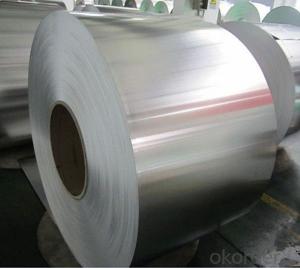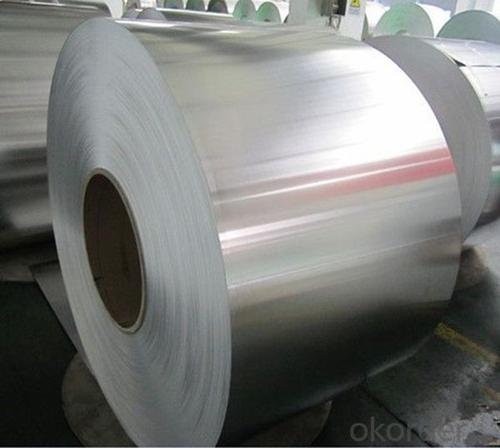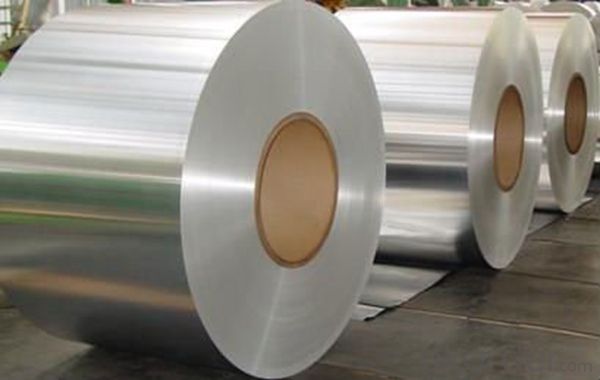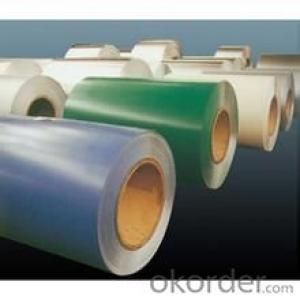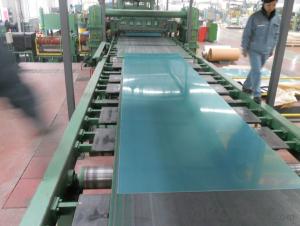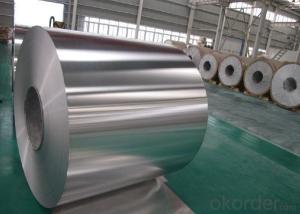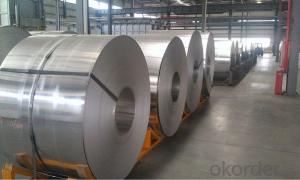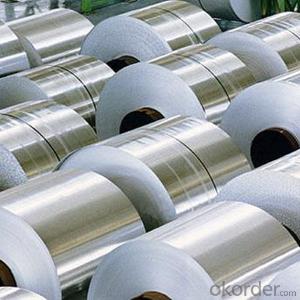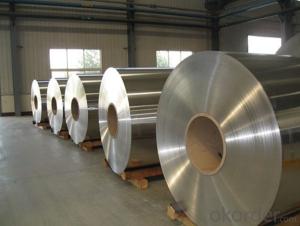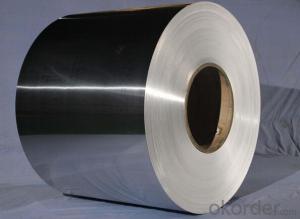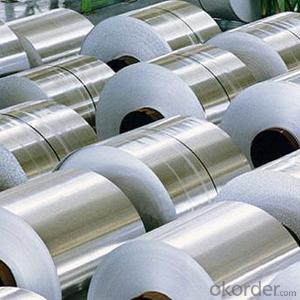AA3003 H12 Direct Rolled Aluminum Coil China Factory Direct Selling - Aluminum Coil Canada
- Loading Port:
- Shanghai
- Payment Terms:
- TT OR LC
- Min Order Qty:
- 5 m.t.
- Supply Capability:
- 10000 m.t./month
OKorder Service Pledge
OKorder Financial Service
You Might Also Like
Specification
1. Specification of AA3003 H12 Direct Rolled Aluminum Coil China Factory Direct Selling
Material | Alloy Aluminum 6063,6061,6005 or customer nominated |
Temper | T3, T4, T5, T6 |
Surface | Anodize, electrophoresis, powder coating, PVDF coating, wood grain painting, matted, etc. |
Colour | Any colour based on Standard Germany RAL Mark |
Length | Coating 6.5 meters, Anodizing 6.5 meters, Mill finish 5 meters |
Press Machine | 500-4000 tons all together 64 press lines. |
Fabrication | 1. Windows and doors; 2. Drilling; 3. Bending; 4. Cutting; 5. etc. |
Certificate | ISO 9001 |
Moulding | 1. Using our moulds, no fee; |
2. Using customer drawing, opening mould, usually about 10~50 tons then the moulding can be refunded. | |
3. Mould cost is negotiable base on the order quantity | |
Capability | Annual output 100,000 tons |
2. Application of AA3003 H12 Direct Rolled Aluminum Coil China Factory Direct Selling
(1).Interior: wall cladding, ceilings, bathrooms, kitchens and balconies, shutters, doors...
(2).Exterior: wall cladding, facades, roofing, canopies, tunnels,column covers , renovations...
(3).Advertisement: display platforms, signboards, fascia, shop fronts...
3. Feature of AA3003 H12 Direct Rolled Aluminum Coil China Factory Direct Selling
*Such coil is specially designed to replace aluminum ingot, due to the high export tax of aluminum ingot, the coil has better price than ingot.
*This type of coil can fit customer's remelting furnace just like ingot, no need to make any change to the production line that was previously used for ingot. The standard coil size and weight is very suitable for the feed gate of furnace.
*This type of coil causes less material wastage than ingot when remelted.
*Our coil is made directly from ore, no need to go though the ingot making process, quality is much better than other suppliers who use ingot scrap to make coil.
Be free from Oil Stain, Dent, Inclusion, Scratches, Stain, Oxide Dicoloration, Breaks, Corrosion, Roll Marks, Dirt Streaks and other defect which will interfere with use
4. Certificate:
SGS and ROHS(if client request, paid by client), MTC(plant provided), Certificate of Origin(FORM A, FORM E, CO), Bureau Veritas and SGS (if client request, paid by client), CIQS certificate
5. Image of AA3003 H12 Direct Rolled Aluminum Coil China Factory Direct Selling
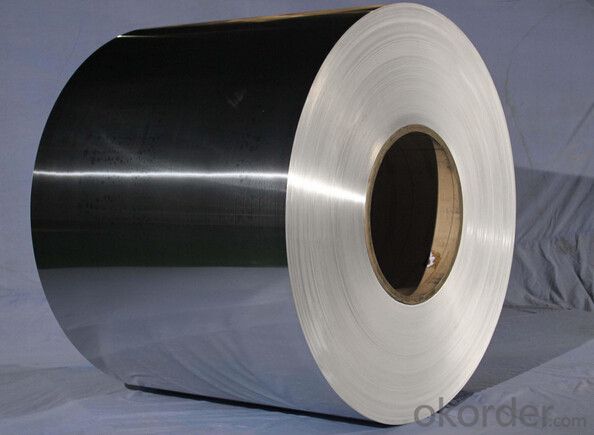
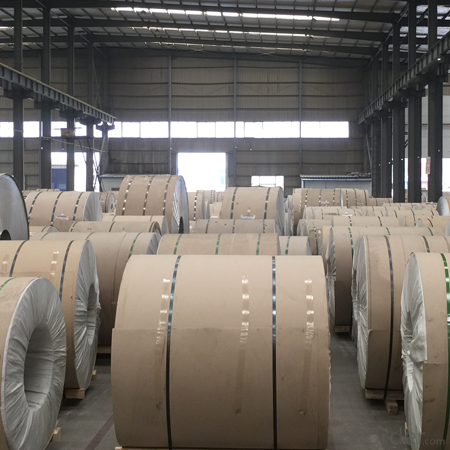
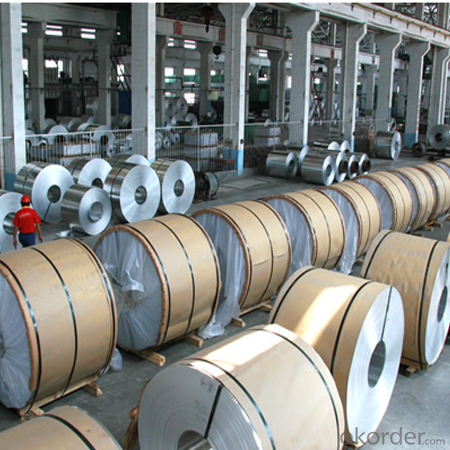
6. Package and shipping of AA3003 H12 Direct Rolled Aluminum Coil China Factory Direct Selling
eye to wall
eye to the wall
with wood pallet (wooded case also available)
7. FAQ
1) What is the delivery time?
Dpends on actual order, around 20 to 35 days
2)What is the QC system:
We have QC staff of 20 persons and advanced equipment, each production is with MTC traced from Aluminum ingot lot.
3) What market do you mainly sell to?
Australia, America, Asia, Middle East, Western Europe, Africa etc
- Q: Is it possible to use a soldering iron to join aluminum coil with solder?
- <p>Traditional soldering irons are not suitable for soldering aluminum coils because aluminum does not readily bond with common solders used for irons. Aluminum has a high oxide layer that forms quickly, which prevents the solder from adhering. Specialized aluminum solder or fluxes are required for this task, and even then, the process might not be as effective as with other metals. For aluminum, brazing or welding techniques are often more appropriate.</p>
- Q: Are there any limitations on the width-to-thickness ratio of aluminum coils?
- Yes, there are limitations on the width-to-thickness ratio of aluminum coils. The specific limitations depend on various factors such as the intended application, manufacturing process, and the mechanical properties of the aluminum alloy being used. Generally, a higher width-to-thickness ratio can result in increased material instability, difficulty in handling, and potential quality issues. Therefore, it is necessary to carefully consider these factors and consult industry standards and guidelines to determine the appropriate width-to-thickness ratio for aluminum coils.
- Q: what is aircraft grade aluminum?
- Aircraft grade Aluminum is made to be very durable and strong, also Aluminum does not rust.
- Q: Which type of wheel is more durable, long-lasting and which wheel type would cost more, Aluminum or chrome?
- Aluminum are lighter, which mean faster car. Stronger, stay cleaner longer. Chrome are more expensive. Just made for people who like being flashy.
- Q: What are the different coil transportation options for aluminum coils?
- There are multiple transportation options available for aluminum coils, each offering their own advantages and suitability depending on various factors. These include: 1. Utilizing flatbed trucks: Commonly employed for aluminum coil transportation, flatbed trucks feature an open top and a flat, open trailer bed. To ensure secure transportation, the coils are firmly strapped or banded onto the bed, minimizing any potential movement. 2. Employing coil racks: Specifically designed for carrying aluminum coils, coil racks are specialized transportation equipment typically made of steel. These racks are placed within trucks or trailers, enabling the coils to be stacked and held in place by dividers, ensuring no shifting or damage occurs. 3. Opting for coil trailers: Specifically created for the transportation of aluminum coils, coil trailers possess a unique coil cradle system designed to securely hold the coils during transit. These cradles are adjustable, accommodating various coil sizes and preventing any potential movement or harm. 4. Considering container shipping: Another alternative for aluminum coil transportation involves the use of shipping containers. By loading the coils into the containers and securing them with straps or bracing, this option is frequently utilized for international transportation due to the ease of loading containers onto ships or trains. 5. Selecting rail transport: Rail transport presents an additional option for aluminum coil transportation, particularly for long-distance journeys. Specialized rail cars, known as coil cars, incorporate cradles or racks to securely hold the coils throughout the transit. This method is often chosen for its cost-effectiveness and efficiency. Ultimately, the selection of a suitable coil transportation option is dependent on factors such as distance, cost, and the specific requirements of the coils being transported.
- Q: What is the weight of an average aluminum coil?
- The weight of an average aluminum coil can vary depending on its size and thickness. However, as a general estimate, a standard aluminum coil with a thickness of 0.5mm to 1.5mm typically weighs around 1 to 3 tons. It is important to note that this is just an approximation and the actual weight can be higher or lower depending on the specific dimensions and properties of the coil.
- Q: Are aluminum coils suitable for insulation jacketing?
- Yes, aluminum coils are suitable for insulation jacketing. Aluminum is a highly durable and corrosion-resistant material that can effectively protect insulation materials from external elements. Additionally, aluminum coils offer excellent heat and moisture resistance, making them an ideal choice for insulation jacketing applications.
- Q: How are aluminum coils tested for quality?
- To ensure compliance with the necessary standards, a variety of methods are employed to test the quality of aluminum coils. Trained personnel conduct visual inspections to identify any visible defects, such as scratches, dents, or surface imperfections. Likewise, dimensional inspections are carried out, utilizing precision instruments to measure the thickness, width, and length of the coils. This guarantees that the coils are manufactured within the specified tolerances. Furthermore, mechanical testing is performed to evaluate the strength and durability of the aluminum coils. Tensile and yield strength tests measure the maximum load a coil can endure without breaking or deforming, while bend tests assess flexibility and resistance to cracking. Moreover, chemical composition analysis is conducted to verify the purity and consistency of the aluminum material. Spectroscopy techniques, such as atomic absorption or emission spectroscopy, are commonly employed to determine the exact elemental composition of the coils. Coating tests are also conducted to assess the quality of any protective or decorative coatings applied to the aluminum coils. These tests include adhesion testing, corrosion resistance testing, and evaluation of color consistency. In addition to these conventional methods, advanced non-destructive testing techniques are utilized to detect any internal flaws or defects in the coils. Ultrasonic testing, eddy current testing, and X-ray inspection are employed to identify hidden defects without causing damage to the material. Ultimately, a combination of visual, dimensional, mechanical, chemical, and non-destructive tests ensures that aluminum coils meet the necessary quality standards before being utilized in various industries, such as construction, automotive, or electronics.
- Q: Are aluminum coils suitable for high-pressure applications?
- High-pressure applications are generally not suitable for aluminum coils due to their low strength compared to metals like steel or copper. Despite being lightweight and corrosion-resistant, aluminum coils are prone to deformation or failure under high pressure. In order to withstand significant stress and ensure a robust system, materials with higher strength such as copper or stainless steel are commonly used in such applications. Nevertheless, it is crucial to refer to industry standards, guidelines, and specific requirements to determine the most suitable material for a particular high-pressure application.
- Q: What benefits can utilizing aluminum coil bring to the construction industry?
- <p>Aluminum coil offers several advantages in construction, including its lightweight nature which reduces structural load and facilitates easier handling and installation. It is highly resistant to corrosion, ensuring longevity and low maintenance costs. The material is also known for its excellent thermal conductivity, making it suitable for energy-efficient applications. Additionally, aluminum coil is recyclable, contributing to sustainability and reducing environmental impact. Its versatility allows for various applications, from roofing and siding to structural components, enhancing aesthetic appeal and functionality.</p>
Send your message to us
AA3003 H12 Direct Rolled Aluminum Coil China Factory Direct Selling - Aluminum Coil Canada
- Loading Port:
- Shanghai
- Payment Terms:
- TT OR LC
- Min Order Qty:
- 5 m.t.
- Supply Capability:
- 10000 m.t./month
OKorder Service Pledge
OKorder Financial Service
Similar products
Hot products
Hot Searches
Related keywords
